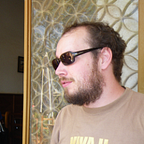Boko Haram Killed Hundreds of Civilians After Troops Fled
Nigeria’s deadliest week
by PETER DÖRRIE
The terrorist group Boko Haram killed hundreds of people—prehaps as many as 2,000—during an attack on Baga, a town in far northeast Nigeria on the shores of Chad Lake.
The town itself was nearly wiped off the map. Amnesty International called it the deadliest massacre ever committed by Boko Haram.
Insurgents first attacked the city’s military base on Jan. 3. Despite at least four earlier attacks during the last two years, the garrison wasn’t prepared for the onslaught, according to one Nigerian security analyst.
The soldiers fled after “resisting for several hours,” Borno state officials said. But reinforcements couldn’t come to their aid. Boko Haram had already cut off Baga from other government-controlled areas.
As the soldiers abandoned their weapons and ran, Boko Haram fighters helped themselves to the garrison’s stores of assault rifles, machine guns, rocket-propelled grenades and ammunition.
The group took the supplies and left.
But the attackers returned in force Jan. 7 to the now-defenseless city, committing a massacre of Biblical proportions.
While torching the town, the militants indiscriminately shot the remaining inhabitants. A local official told the BBC that the town of 10,000 inhabitants is now “virtually non-existent.”
The people of Baga weren’t Boko Haram’s only victims that week.
The Islamists captured and partially destroyed no fewer than 16 other towns and villages in Borno state. The army repelled a large-scale attack on Damaturu, the capital of neighboring Yobe state.
Two suicide bombers blew themselves up in a market in Potiskum, a town in Yobe. The blasts killed at least 19 people. One attacker was a 10-year-old girl.
The sheer scale of the death toll is staggering. It also came the day before Nigerian president Goodluck Jonathan officially started his campaign for the country’s Feb. 14 election.
On Jonathan’s watch—he’s been in office since 2010—Boko Haram has risen to become a major terrorist organization.
The attack also hit the official base for the Multi-National Joint Task Force tasked with beating back the militants. It’s a further blow to a force that was already struggling.
The MNJTF originally planned to incorporate 700 soldiers each from Nigeria, Niger, Chad and Cameroon to counter the insurgents in a region where borders have little practical relevance.
But the MNJTF never took off, and now Niger has officially ruled out helping Nigeria take back Baga. Chad and Cameroon kept their distance from the project, citing Nigeria’s unwillingness to live up to its troop commitments for the force.
Official and anonymous sources from these countries are becoming exasperated with Nigeria’s inability to stop an insurgency that’s increasingly threatening the stability of its neighbors.
Of all the neighboring countries, the hardest hit is Cameroon, where Boko Haram attacks are common.
Boko Haram’s leader Abubakar Shekau threatened Cameroonian president Paul Biya directly in a recent video. “Oh Paul Biya, if you don’t stop this, your evil plot, you will taste what has befallen Nigeri,” Shekau said. “Your troops cannot do anything to us.”
Shekau’s remarks could be a reaction to Cameroonian air force strikes in December. It was the first time Cameroon’s warplanes bombed the Islamists, and occurred after 1,000 Boko Haram insurgents attacked a Cameroonian army base.
Biya is one of the highest-profile advocates of international action against the rebels. The president argues that terrorism must be treated as a global threat.
Western governments tend to concur—with officials in Washington often mentioning Boko Haram in the same breath as Islamic State, Al Qaeda and Al Shabab.
But the assumption that Boko Haram is an international issue, and therefore requires global solutions, is actually be part of the problem.
Apart from a few incidents, like the 2011 car bombing of the United Nations building in Abuja, taking Western hostages and some blustering rhetoric, Boko Haram has so far displayed surprisingly little international ambitions.
In reality, Boko Haram’s history shows that the group is inextricably linked to local grievances.
Large numbers of people in northeastern Nigeria and northern Cameroon are politically and economically marginalized. The local governments in both states are highly corrupt.
As an insurgent group, Boko Haram exploits these resentments—and terrorizes anyone who disagrees.
The growth of the insurgency has indeed given the group a regional dimension. The militants actively recruit in both Niger and Chad. But the conflict doesn’t have any hope of ending as long as Boko Haram retains support among the local population.
Biya’s push for the internationalizing the conflict might even prove to be dangerous. Bringing in foreign armies to handle a local conflict can have the effect of spreading the fighting instead of containing it.
